MercoPress. South Atlantic News Agency
Tag: China
-
Tuesday, March 25th 2014 - 23:09 UTC
China's manufacturing sector contracted in March, according to private survey
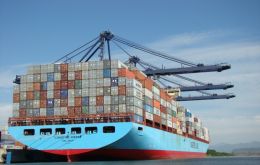
China's manufacturing sector showed further contraction in March, according to a new report which mainly tracks activity in smaller factories. The HSBC Purchasing Managers' Index (PMI) gave a reading of 48.1 for March, compared to 48.5 in February.
-
Tuesday, March 25th 2014 - 09:25 UTC
Malaysia officially declares that Flight MH370 crashed in the Indian Ocean
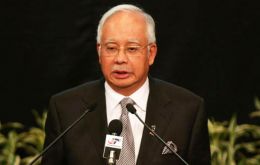
The Malaysia Airlines plane that disappeared over two weeks ago crashed in the southern Indian Ocean, Prime Minister Najib Razak announced on Monday. New satellite analysis from Britain had shown that Flight MH370, with 239 people on board, was last seen in the middle of the Indian Ocean west of Perth, Australia, he said in a statement.
-
Friday, March 14th 2014 - 10:12 UTC
China's first two months industrial output figures feed fears of a slowdown

China's industrial output rose 8.6% in January and February, according to the National Bureau of Statistics. Retail sales - a key measure of consumer spending - also increased 11.8% from the year before, government figures show. The figures were less than analysts had been expecting, adding to fears of a slowdown.
-
Thursday, March 13th 2014 - 23:31 UTC
China ready to set up private banks as it takes steps to open financial sector
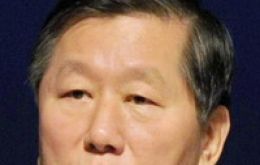
Internet firms Alibaba and Tencent have been shortlisted as pioneers of a pilot scheme to set up private banks in China, as the country takes steps to open up its financial sector. A total of ten companies have been selected to set up private banks.
-
Wednesday, March 12th 2014 - 09:13 UTC
Mining companies shares down hit by a slump in the price of iron ore
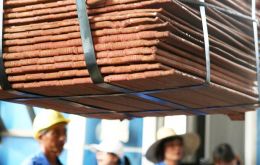
Shares in some of the world's biggest mining companies have been hit by a slump in the price of iron ore, amid fears of a slowdown in China's economy. Iron ore delivered into China fell 8.3% on Monday after Beijing reported weak export data over the weekend.
-
Thursday, February 13th 2014 - 01:35 UTC
China trade surplus jumps in January, with imports increasing by 10%

China's trade surplus jumped to 31.9bn dollars in January, easing concerns the world's second-largest economy may be stuck in a slowdown. The figure was up 14% from a year earlier and stronger than forecasts for a 23.7bn surplus.
-
Tuesday, February 4th 2014 - 08:56 UTC
China became Uruguay's main trade partner in 2013
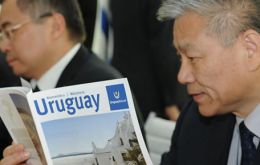
China became Uruguay's main trade partner in 2013 totaling 20.9% of all trade according to the latest stats from the Central bank. This leaves China three percentage points ahead of Brazil, 18.8% (traditionally the main partner) and almost four ahead of Argentina with 18.1%.
-
Friday, January 31st 2014 - 06:58 UTC
Chinese communities begin seven-day celebration of the Year of the Horse
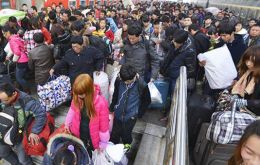
Chinese communities around the world are gearing up Thursday for the Lunar New Year holiday that begins at midnight. Mainland China will virtually shut down for the next seven days, and many residents of the polluted capital, Beijing, already have departed for holiday destinations.
-
Thursday, January 23rd 2014 - 10:13 UTC
Report reveals overseas accounts in tax havens of the Chinese communist elite
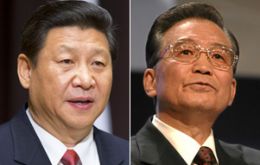
Close relatives of China’s top leaders have held secretive offshore companies in tax havens that helped shroud the Communist elite’s wealth, a leaked cache of documents reveals. As the report was released several western newspapers, news agencies and websites, some of them with the mandarin version, were hacked in China.
-
Tuesday, January 14th 2014 - 07:50 UTC
China becomes the leading market for Uruguayan meat exports

Uruguay's meat exports slid 6.5% in volume during 2013 compared to the previous year, but the big news is that China has become the main client for beef, followed by Nafta countries, (US, Canada and Mexico), according to the latest release from the country's National Meat Institute, INAC.
